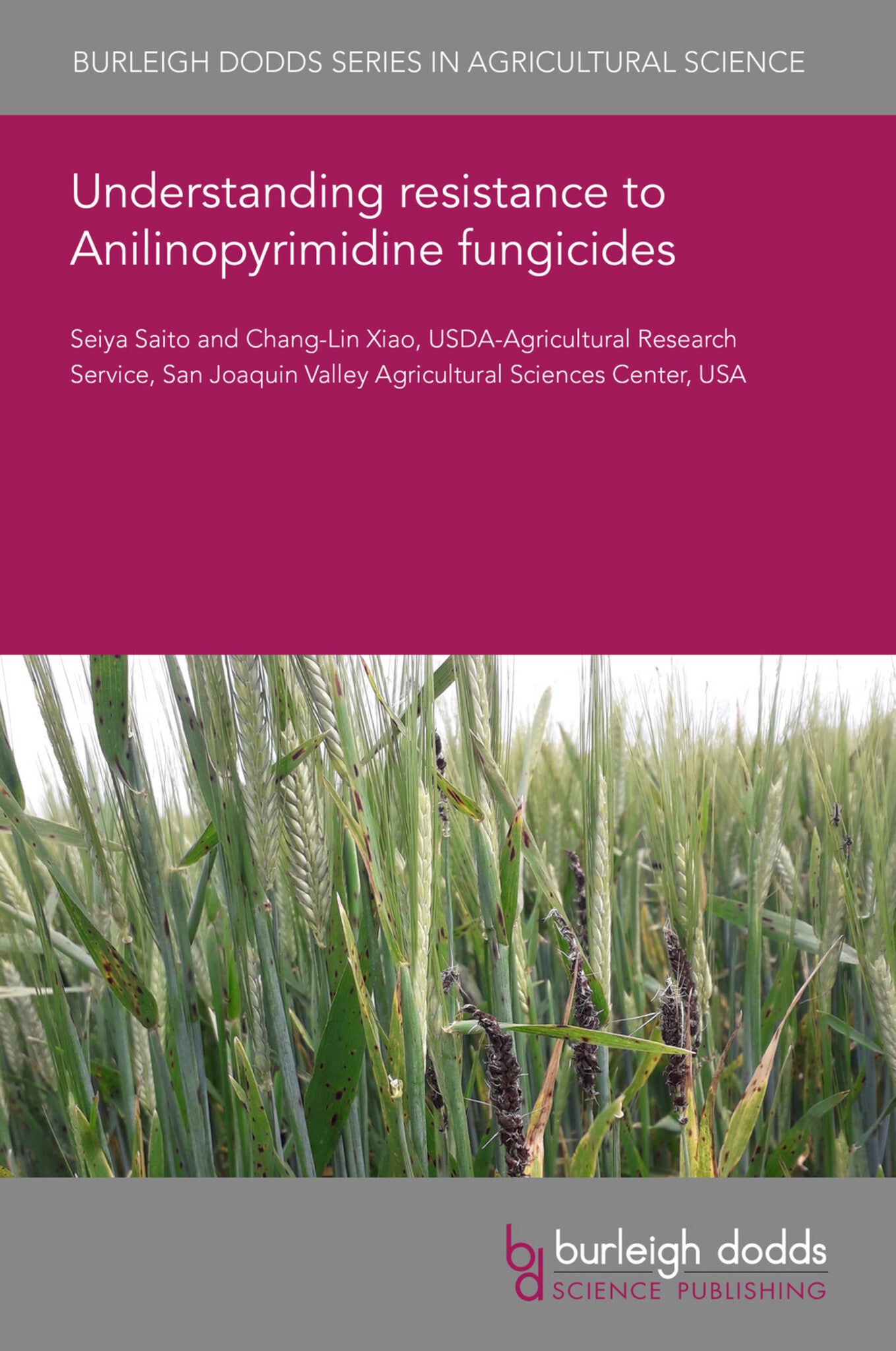We're sorry. An error has occurred
Please cancel or retry.
Understanding resistance to Anilinopyrimidine fungicides

Some error occured while loading the Quick View. Please close the Quick View and try reloading the page.
Couldn't load pickup availability
- Format:
-
25 September 2023

Anilinopyrimidines (AP) are a chemical class of fungicides that are effective against a broad range of phytopathogenic fungi. Cyprodinil, mepanipyrim and pyrimethanil belonging to this class are currently available in the market. Resistance to AP fungicides has been reported in various fungal species from many crops worldwide, and control failure has been reported in certain cases. Resistance to AP fungicides involves modifications in the target genes, efflux transporter related multi-drug resistance, or a combination of these. Common resistance management practices such as limiting number of applications and alternations of fungicides with different modes of action classes may not suffice. Moreover, in recent years, resistance to multiple classes of fungicides, including APs, has developed and become prevalent in certain fungal pathogens. It is therefore essential to take into account various aspects of fungicide resistance of target pathogens in order to develop tailored resistance management strategies and maintain efficacy of AP fungicides.

TECHNOLOGY & ENGINEERING / Pest Control, Pest control / plant diseases, TECHNOLOGY & ENGINEERING / Agriculture / Agronomy / Crop Science, TECHNOLOGY & ENGINEERING / Agriculture / Sustainable Agriculture, Agronomy and crop production, Sustainable agriculture, Agricultural science

- 1 Introduction
- 2 Mode of action
- 3 Mechanism of resistance
- 4 Fitness cost
- 5 Monitoring Anilopyrimidine fungicides resistance
- 6 Resistance risk management
- 7 Where to look for further information
- 8 References



